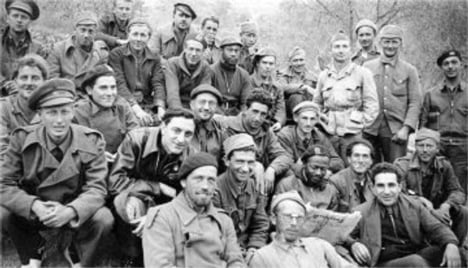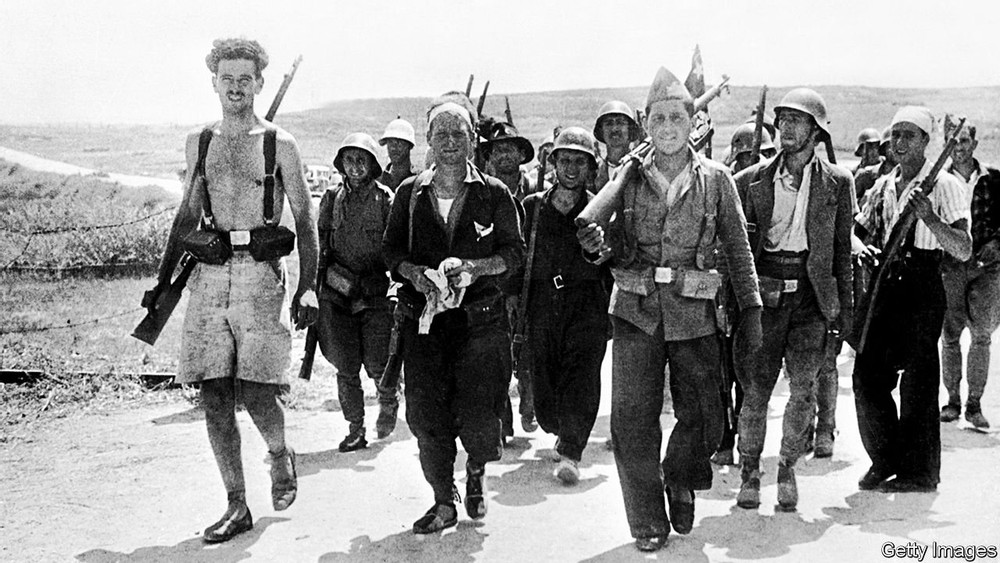
We were lucky enough to be invited on a walk tracing the steps of some of the International Brigade as they retreated from near Batea towards Gandesa. The walk is called the Merriman March and was led by the very knowledgable local Anna Marti.
The International Brigades contained volunteers from around the world who came to Spain, often illegally from their home countries, to fight for the Republicans against fascism and to uphold democracy. The Brigaders have obtained almost mythical status amongst many Catalans and around the world. I guess it’s similar to soldiers, sailors and airmen coming from countries not directly threatened by Germany in WWII and fighting alongside the Allied forces for the greater good. I will put up more about the Spanish Civil War in another post.
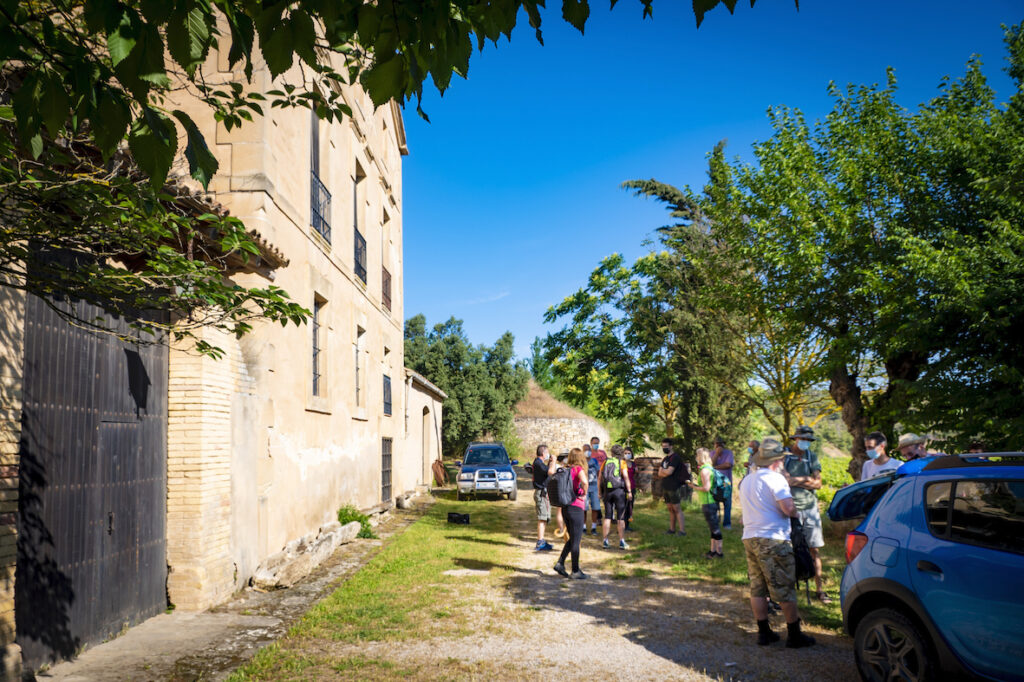
Some people may ask about the point of these activities and memorials and surely it may be better to forget about the past. However, the other point of view and one that I agree with is that history, particularly when it is as recent and brutal as the Spanish Civil War, is vitally important to ensure future generations are aware of the past and can learn from it. For decades it was taboo to talk about the Civil War in Spain but it has a huge bearing on how the modern state functions. Another reason is that the families of the tens of thousands of victims who are buried in unmarked and mass graves across Spain have a right to know where their parents and grandparents, aunts and uncles ended up. These people should not be forgotten.

So, on to the walk! We met in the lovely small town of Batea in the region of La Terra Alta, one of Catalonia’s poorest but most unspoilt regions. From here we ventured a few kilometres to a large, impressive old farmhouse where the Brigaders were staying before their trip towards the River Ebro. At this point, late March/April 1938, the Republicans were trying to regroup to the East of the Ebro for an assault back over the river in what was to become the Battle of the Ebro.
The countryside in this area is incredibly peaceful, as those who have visited will know. It is hard to imagine that just over 80 years ago this area was the scene of bloody fighting, both on the ground and in the air, that saw up to 30,000 people killed. As we strolled along in the warm late May sunshine (the walk was delayed due to Covid!) Anna pointed out various points of interest and filled us in on what happened and where. It was fascinating to think that all those years ago the men, poorly fed and exhausted, had walked these paths not really knowing where they were going and what would happen to them. International Brigaders were generally executed if captured. The Civll War was particularly brutal both for soldiers and civilians. Hearing the individual stories of some of the men gave us an idea of what they went through and why they came to fight. One of the stories told to us was that a group of men on the march had become separated from the main party and stumbled into a Nationalist camp at night. Out of about 80, 60 were shot.
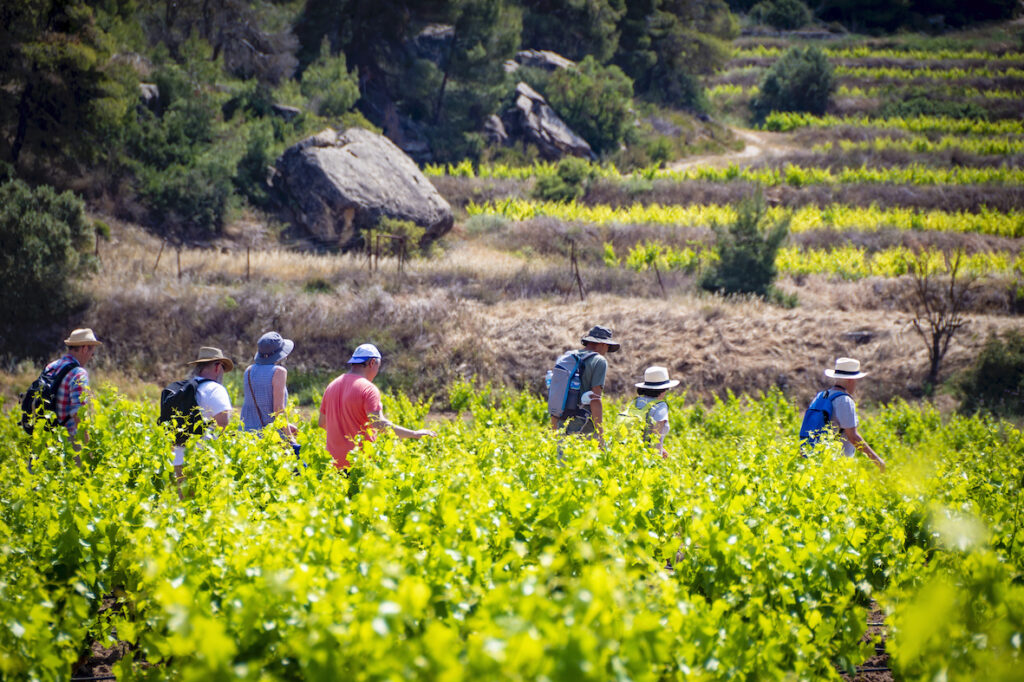
Along the way we chatted as best we could to some of the locals who were quite interested to find out why we had come along and what we knew about this period of history. Some of them had family members caught up in the conflict, including Anna herself. A support vehicle kept popping up with wine and coffee, those two Catalan staples, that were very welcome as the day becam warmer! That was my excuse anyway…
By late afternoon we had reached an area overlooking Gandesa, at that time in 1938 in the hands of Franco’s Nationalists. The Brigaders had stayed here before making the last push to Corbera d’Ebre with some skirmishes en route. The whole route was about 30km, though I had to skive off as the last section as we were running very late and it was my wedding anniversary!!
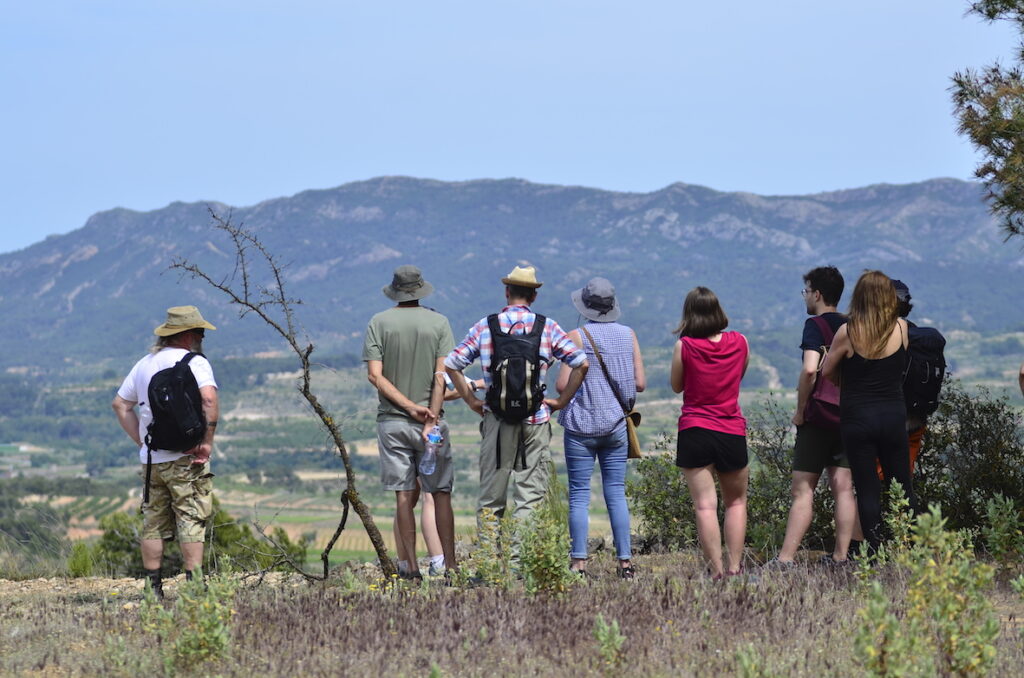
The decisive Battle of the Ebro began in July 1938 and ended in November the same year. Anyone who has been here in July and August knows how blisteringly hot it is then. How these people managed to keep going in these brutal conditions, let alone actually fight is beyond my comprehension. Bearing in mind they had little food, uncomfortable and hot uniforms and were lugging around weapons, packs and ammunition, it must have been absolute hell. That is why, for me at least, it is important these people and this period of history are not forgotten.
